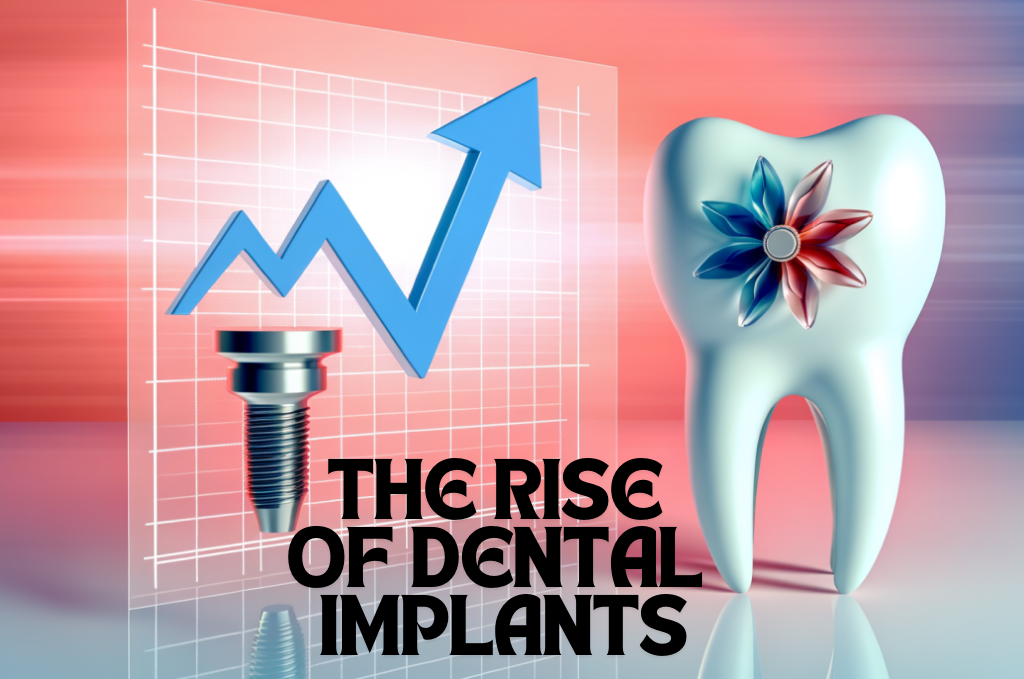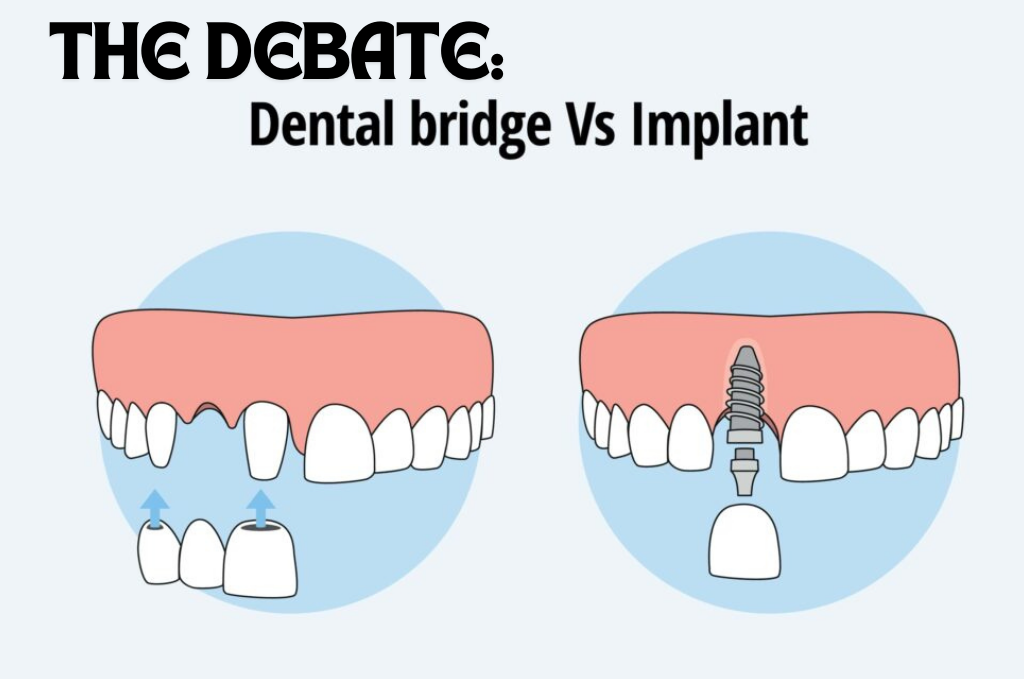Hello people! When reading the headlines: “Are dentists making too many dollars at the expense of the patient’s health through implants?”
A survey was conducted in this study to analyze the trend and growth of demand for dental implants in recent decades among the target population of dental.
Dental implants are surgical fixtures of titanium placed into the jawbone to replace missing or severely damaged teeth, which are commonly marketed as a long-term procedure that has many advantages.
Let’s dive in!
Table of Contents
The Rise of Dental Implants: A Booming Industry

Today, placing dental implants has become one of the most popular procedures in the sphere of dental medicine. The global dental implant market is anticipated to hit $ 11.4 billion by 2025, affiliated with a CAGR of 6.2%, as stated in Grand View Research’s 2020 report.
Some of the explanations as to why there may be an increase in such a demand include increased prevalence of aging people, improved teeth awareness, as well as enhancement of technologies used in the execution of the plan that makes it easier in contrast to the past.
Despite all these advantages, implant dentistry is more costly than a traditional dental procedure. The price of an individual dental implant can fall anywhere between one thousand five hundred and six thousand US dollars depending on several aspects, including location, the kind of material used in the procedure, and the severity of the procedure.
This financial aspect has made some people wonder whether dentists may be encouraged to put implants even if options like fillings, crowns, or root canals could suffice.
The Debate: Healthy Teeth vs. Implants

The single most significant ethical problem in current dentistry is the extraction of sound and restorable teeth and Dental implants. While many patients believe that dental implants are one of the most helpful treatments for those with severe dental conditions, more and more people are skeptical about extraction if the tooth can be treated in other ways.
In the former type, perfectly healthy but ugly teeth are extracted and replaced by implants. The opposition to this idea posits that this is done out of the pretext of benefiting the patient when, in fact, it is a way of making more money.
This has raised controversy in implant pros as to whether implantation is being used as a solution where simpler and cheaper methods of treatment can be applied.
What is Particularly Financial about Implant Recommendations
Well, so far, you cannot argue that dental implants are a very profitable business. The study, conducted by the American Dental Association (ADA), showed that dental implants increase practice revenues more than any other service.
Although the numbers are different in various locations, a single dental implant surgery may generate more income than a filling or a root canal. The Journal of Implant Dentistry has also stated that the profit per dental implant is much higher than in other forms of restoration.
This has spurred some people to wonder if financial motives may be playing a part in treatment choices.
- Over-treating patients: the impact on patients The virtues of over-treating patients
- Over-treating patients: Costs & Benefits
There are quite apparent ethical issues with extracting healthy teeth in lieu of implants. According to the American Dental Association Code of Ethics, the welfare of the patients has to come first with the dentist.
Two fundamental principles of medical and dental conduct are non-malfeasance and non-harm. Implants also pose a similar ethical problem; a dentist could be violating this ethical standard by extracting healthy teeth and installing the implants.
An ethicist and dentist, Dr. A. K. Jha, further comments that it is quite unethical to advise patients to go for implants where they are not needed, and this will erode patient dentist trust. As for themselves, patients expect in the course of their visit to a dentist that everything that is being done to them will in some way be for their good.
It is not right to mislead patients by telling them they need implants when similar solutions can solve their oral problem and, in the process, harm their dental health besides denouncing the integrity of the health practitioners.
The Dangers of Extraneous Tooth Removal
Although dental implants are deemed safe and efficient in the course of their proper application, there are a number of dangers related to sound teeth extraction for the implantation process. Some of these risks include:
More Expenses and Longer Time in the Recovery Period
Implant operations are relatively expensive and time-consuming compared to most treatments and surgeries. Replacing a space after taking out a healthy tooth is financially and time-consuming for the patient since they will need more surgeries, spend more money on hospital bills, and need more time to heal.
- Potential Complications: Just like any other surgery, dental implants have complications, although they are rarely experienced. Certain risks may be caused by infections, nerve injury, failure of the implanted material, or the possibility that the jawbone is not strong enough for a graft. Taking out healthy teeth causes additional risks and more time and may develop potentially severe negative health consequences for a patient.
- Long-Term Tooth Function: Even in the later stages, when the implant is fitted into the jawbone perfectly, it will not work like the original tooth. Certain questions can also currently be asked: Are implants effective in biting, and are there discomforts such as gum keratinization or implant mobility after several years of implantation?
- Saving Healthy Teeth: If one is looking for conservative dentistry, one must look to the young professionals who are starting in practice and the advances in dental medicine.
- Currently, the eight for the radical view of dentistry preserve the natural teeth from extraction and not from the implants that are available. These include root canals, crowning, and fillings, which have yielded positive results in treating most dental conditions without necessarily requiring tooth extraction.
For instance, endodontic treatment is useful in treating teeth that have been badly affected by caries or infected teeth. A crown, a vital part of this treatment, is a restoration that covers the entire visible portion of the tooth, in other words, it is cemented onto the tooth, encasing it wholly to replace the outer enamel shell and restore the tooth’s structure completely.
It can strengthen the tooth and last many years. Often, such treatments are compared with implants in terms of invasiveness and cost, and the former turned out to be more effective.
Unfortunately, some people develop an abscess inside the root canal and need one of the few effective treatments: root canal treatments have a success rate of 85-90% based on data from the NHS and are effective at saving the life of a tooth when an extraction is the only other option.
Also, further innovations in regenerative dentistry, such as going for stem cells and bioactive components, are creating chances of replacing the affected tooth without pulling it out. In the future, with improving technology, there might be better ways of saving teeth and which causes less trauma to the body.
How, then, can Patients Protect Themselves?
In this regard, for patients wanting dental care, one also has to be knowledgeable and assertive. Here are some steps you can take to ensure you receive ethical and appropriate treatment:
- Get a Second Opinion: If a dentist proposes removing healthy teeth to put implants, consider consulting with another good dentist.
- Ask About Alternatives: Always ask about other available treatments for tooth conditions, including fillings, crowns, or root canal therapies, which can help save your natural dentition.
- Research Your Dentist: Make sure your choice of a dentist is well accredited and has been reviewed and rated by previous clients or patients so that their activities can be professionally audited to protect patients’ health.
- Understand the Risks: If you are ready to undergo the process, make sure you know all possible risks, costs, and related complications.
The following video explains about Easiest Method for Tooth Extraction:
Conclusion
Dental implants are very helpful, especially if a client has lost teeth through an accident or disease. However, with an increasing number of dentists suggesting implants to be placed in healthy, easily treatable teeth, the issue becomes highly ethical and fiscally questionable.
Although costs and profits cannot be criticized for being high and such for implants, especially given existing research data, the message to dentists does not change: the safety of patients remains paramount.
Can Patient Interest take precedence over Economic gains when it comes to denture implants?
FAQ
1. Are dentists pulling healthy teeth for dental implants?
This is a truth; some dentists may pull out otherwise healthy teeth to suggest implants.
2. What reasons could there be that dentists encourage the use of implants on healthy teeth?
Financial bonuses and increased profits can be the reason behind performing unwarranted operations.
3. To what extent is teeth pulling done for implants?
Despite such literature, unnecessary extraction cases are still rampant and are even on the rise.
4. That is why the question arises: what risks are involved in extracting healthy teeth for implants?
Possibilities are higher expenses, a longer healing period, and possible complications.
5. Are there ways that prevent various extractions and the placement of implants?
Yes, even as one looks for other recommendations and other treatment methods.




